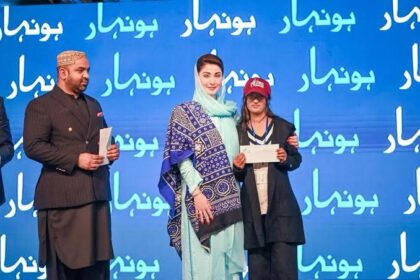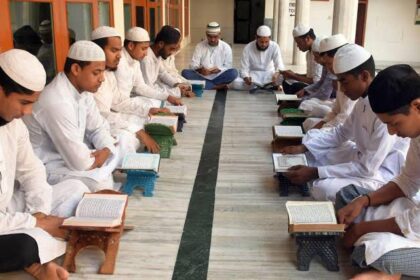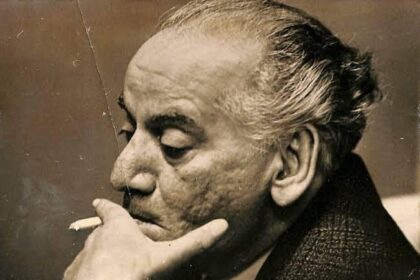Next Level Entertainment’s ongoing series, Faraar, is produced by Sana Shahnawaz and Samina Humayun Saeed. Written by the acclaimed Mustafa Afridi, known for his poignant and unconventional scripts like Zard Patton Ka Bunn, and directed by Syed Wajahat Hussain (Khaie) and Mussadiq Malek (Noor Jahan), the show promises a thrilling ride.
Faraar is the story of six individuals and their interconnected journeys of escape. At its center is Baatish (Hamza Ali Abbasi), a target killer working undercover for the Quomi-Itehad Party (QIP). Accused of murdering both a fellow party worker and Professor Hamdani, an outspoken columnist and critic of QIP, Baatish is forced to flee. On his trail are the party’s leaders, Hamdani’s daughter Sadia (Mamya Shajaffar), and Fasih (Ahmed Ali Akbar), a suspended police officer desperate to prove his worth.
Meanwhile, Nazish (Sohai Ali Abro) is on the run after being wrongfully implicated in her husband’s murder. In another storyline, Babrik (Danyal Zafar) and his fiancée Zallay (Meerub Ali) embark on a dangerous journey to escape their village and migrate to Europe via dunki or illegal means. These interconnected tales of survival and freedom form the premise of Faraar.
The question, however, is whether this thriller is worth your weekend. To find out, I watched it myself—and safe to say, it absolutely is. Here’s why:
The Writing
Unlike the average Pakistani drama, which rarely ventures beyond the domestic confines of a household, Mustafa Afridi’s scripts consistently push boundaries. Faraar transports viewers into a fresh and engaging environment, offering a plot that is both believable and entertaining.
Afridi’s writing in Faraar feels sharper and more dynamic than usual. The dialogue is crisp, and the inclusion of pop-culture references adds a modern touch, making the story relatable to today’s audience. Such references are common in global media but are rarely executed with the finesse seen here in Pakistani dramas.
Thriller Done Right
The direction and editing of Faraar are standout features. Despite being directed by two individuals with distinct styles, the show achieves a seamless narrative flow. The use of muted and cool tones enhances the suspense and tension, creating a gripping visual experience.
Action sequences, which often fall flat in Pakistani thrillers, are executed with precision and originality in Faraar. Moreover, the directors skillfully weave the six parallel stories, ensuring that each character’s narrative is equally compelling. The fast-paced storytelling keeps viewers engaged while maintaining coherence—a testament to the expertise of Syed Wajahat Hussain and Mussadiq Malek.

The Original Soundtrack (OST)
A drama’s soundtrack often leaves a lasting impression, and Faraar is no exception. The OST, sung and composed by Asim Azhar, perfectly complements the series. The melody is ideal for the drama’s introspective moments, while Ashir Pervaiz’s feature enhances the intensity of action sequences. Faraar’s soundtrack signals a departure from the traditional, laid-back tunes typical of Pakistani dramas, embracing a more experimental style that appeals to younger audiences.
Conclusion
If thrillers are your genre, and you’re looking for a Pakistani series that is raw, real, and engaging, Faraar should undoubtedly be on your watchlist. With its sharp writing, seamless direction, and an OST that resonates with the show’s tone, Faraar delivers an experience that is both entertaining and thought-provoking.












